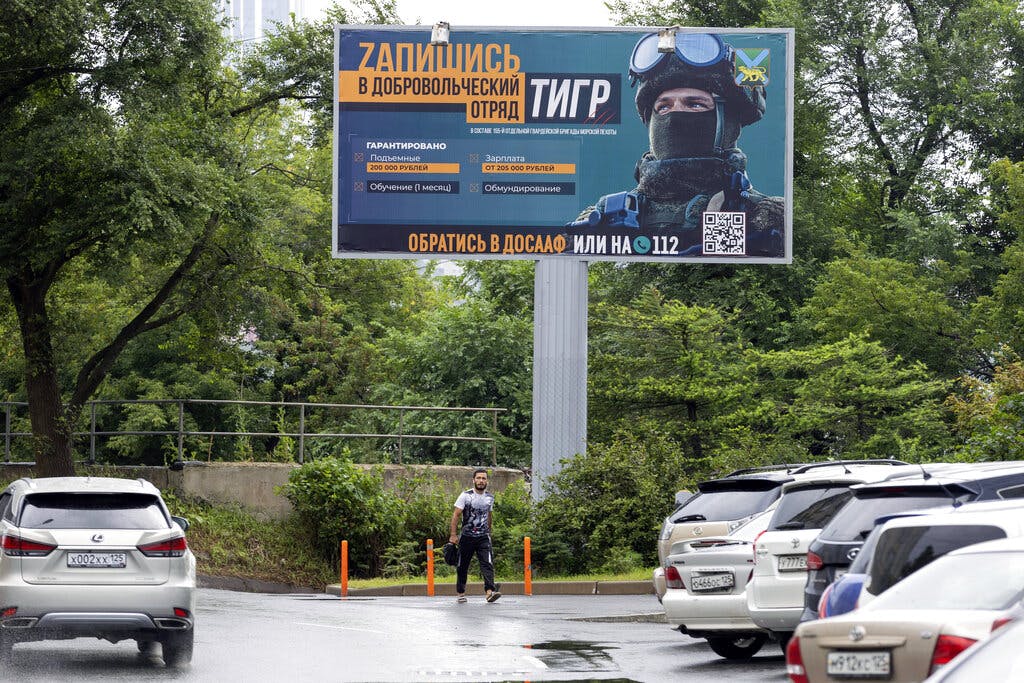‘Putin’s Chef’ Hasn’t Been Seen Since Strike on Wagner Group Base
About 100 of the group’s fighters were killed in the attack on the formerly secret base that is widely being ascribed to a major Russian blunder.

Did a Russian blunder kill the man known as “Putin’s chef,” Yegveny Prigozhin, on Monday in eastern Ukraine? Or did he cook it all up, as Kremlin cheerleaders contend?
Known as one of the Russian president’s most trusted allies, Mr. Prigozhin made his money in the 1990s by running a catering empire. The former petty criminal, who spent time in Russian prisons, operated a Moscow restaurant favored by Vladimir Putin, who was on his way to become Moscow’s strongman.
Mr. Prigozhin became increasingly powerful, and as he joined Mr. Putin’s innermost circle, his “Putin’s Chef” nickname became popular in the Russian press. Mr. Prigozhin was a founder and top financier of the Wagner Group, a mercenary army operating around the world and increasingly in Ukraine.
Mr. Prigozhin may have been at the group’s headquarters at Popasna, in occupied Ukraine, earlier this week. On Monday an American-made Ukrainian Himars rocket destroyed the base, killing at least a hundred Wagner fighters.
The hit marks one of the Ukrainian army’s most successful operations in the area of late. Sources at Kyiv and beyond note that Mr. Prigozhin, an elusive character who nevertheless emerges in public occasionally, has not been seen since then.
The Monday strike on the formerly secret Wagner base is widely described as a major Russian blunder. It came after a Moscow-based pro-Kremlin television reporter, Sergei Sreda, posted on his Telegram account pictures of a visit to the base at the Donbas area.
Mr. Sreda’s posting, showing chummy encounters with Wagner troops and commanders at the base, included several photographs that could be used to identify the base’s exact location at Popansa. In one of the pictures, a building’s address is visible on a plaque near the front door.
Mr. Srada’s Telegram account is currently dormant. His disappearance led to speculation that he might have been killed for his indiscretion.
The Ukrainian attack nearly destroyed the base, along with some of the Wagner Group’s halo as a formidable “elite” fighting force. Spread around the globe, Wagner operates in areas where the Kremlin wants to exert influence while maintaining a degree of deniability.
As a non-official fighting force, Wagner troops operating in places like Syria, Mali, Libya, the Central African Republic, and elsewhere around the world have more freedom to commit atrocities than their counterparts in the official Russian army. Wagner members have been accused of rape, robbery, torture, and other war crimes.
“Mercenaries have no official status, so they don’t have the same rights or guarantees as an official representative of the armed forces, and payment is only after completing a mission,” a former Wagner soldier, Marat Gabidullin, told Al Jazeera recently, adding, “You finish the mission, get paid, and you can go on vacation.”
The mercenaries’ wages are higher than those of the regular army. As recruitment of fresh cannon fodder became more necessary since the start of the Ukraine invasion, Russian billboards erected around the country have offered 240,000 rubles a month, or $4,000, to anyone joining Wagner. That wage is far higher than the earnings of a soldier in the army.
After the February invasion, Wagner started moving troops to the Ukraine front from Africa and Syria. “We’ve seen Wagner draw down a little bit on the African continent in the call to send fighters to Ukraine,” the commander of the U.S. African Command, General Stephen Townsend, said recently.
Wagner’s image of an elite fighting unit is widely derided by critics who say it has long recruited an increasing number of uneducated non-professionals. Yet, it remains trusted by the Kremlin.
Mr. Prigozhin, the Wagner chief, was recently awarded Moscow’s highest honor, the Hero of Russia medal. “His star is rising and by extension, so is Wagner’s,” a Russia watcher at the Foundation to Defend Democracies, John Hardie, told the Sun.
“There clearly is a competition among Russian elites to gain Putin’s favor,” Mr. Hardie said, adding that the competition may have drawn Mr. Prigozhin to the front: “Maybe he felt he should be personally involved” in battle, to show Mr. Putin that Wagner remains his most reliable force.
Mr. Prigozhin has visited the front several times before. One appearance in the Donetsk region was documented with a photograph tweeted by one of the most valuable destinations for Ukraine war followers, Nexta TV.
It is far from clear whether a trip to Popasna ended Mr. Prigozhin’s life, if indeed he was there at the time of this week’s bombing. Moscow propagandists claim he deliberately orchestrated the Ukrainian attack in order to draw Himars fire to the wrong place.
Even if Wagner’s top financier was killed, Mr. Putin will undoubtedly continue to rely on the group in his war on Ukraine. The army that Mr. Prigozhin built is Moscow’s most reliable fighting force.

